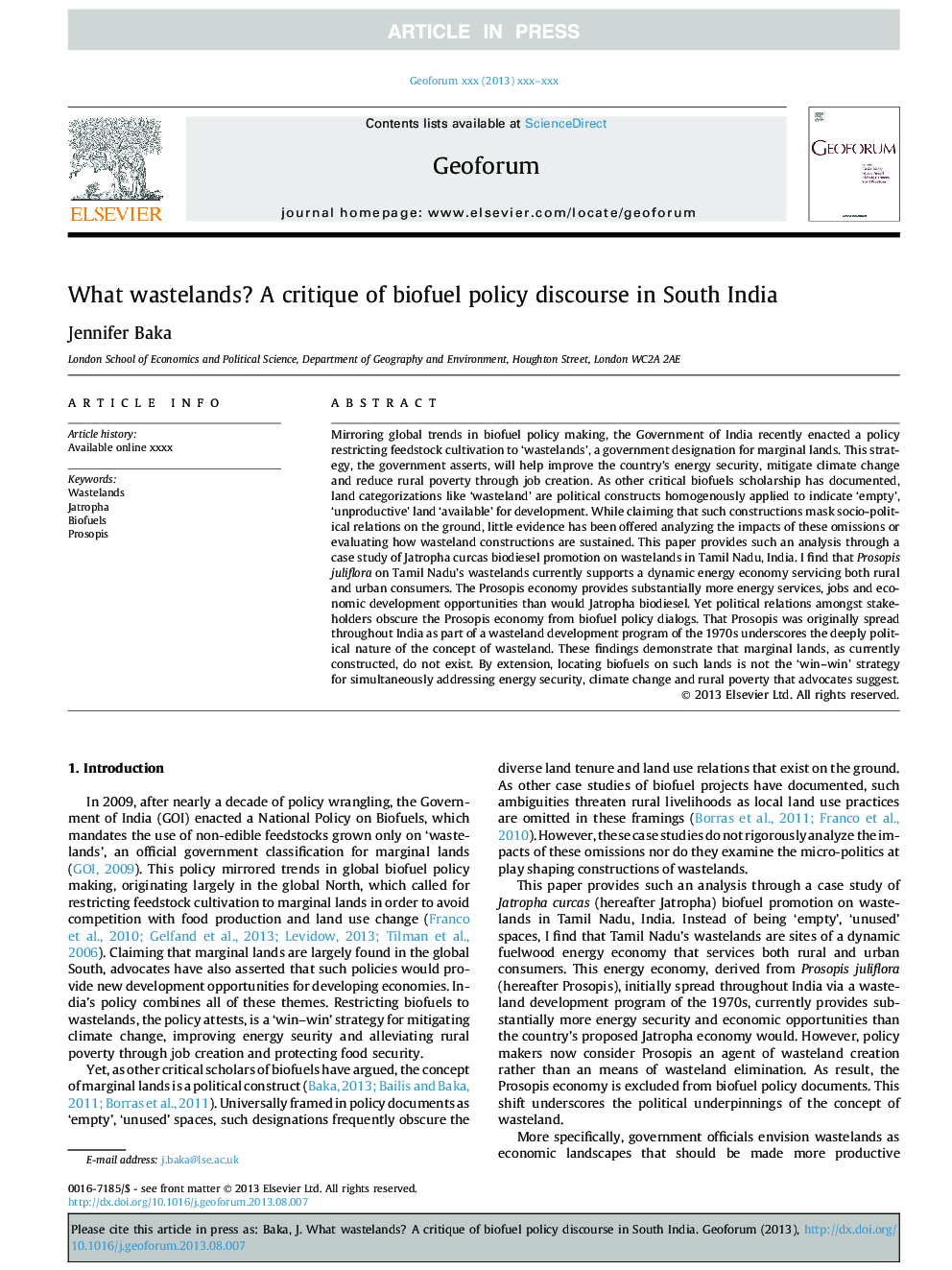| Article ID | Journal | Published Year | Pages | File Type |
|---|---|---|---|---|
| 5074031 | Geoforum | 2014 | 9 Pages |
Abstract
Mirroring global trends in biofuel policy making, the Government of India recently enacted a policy restricting feedstock cultivation to 'wastelands', a government designation for marginal lands. This strategy, the government asserts, will help improve the country's energy security, mitigate climate change and reduce rural poverty through job creation. As other critical biofuels scholarship has documented, land categorizations like 'wasteland' are political constructs homogenously applied to indicate 'empty', 'unproductive' land 'available' for development. While claiming that such constructions mask socio-political relations on the ground, little evidence has been offered analyzing the impacts of these omissions or evaluating how wasteland constructions are sustained. This paper provides such an analysis through a case study of Jatropha curcas biodiesel promotion on wastelands in Tamil Nadu, India. I find that Prosopis juliflora on Tamil Nadu's wastelands currently supports a dynamic energy economy servicing both rural and urban consumers. The Prosopis economy provides substantially more energy services, jobs and economic development opportunities than would Jatropha biodiesel. Yet political relations amongst stakeholders obscure the Prosopis economy from biofuel policy dialogs. That Prosopis was originally spread throughout India as part of a wasteland development program of the 1970s underscores the deeply political nature of the concept of wasteland. These findings demonstrate that marginal lands, as currently constructed, do not exist. By extension, locating biofuels on such lands is not the 'win-win' strategy for simultaneously addressing energy security, climate change and rural poverty that advocates suggest.
Keywords
Related Topics
Social Sciences and Humanities
Economics, Econometrics and Finance
Economics and Econometrics
Authors
Jennifer Baka,
